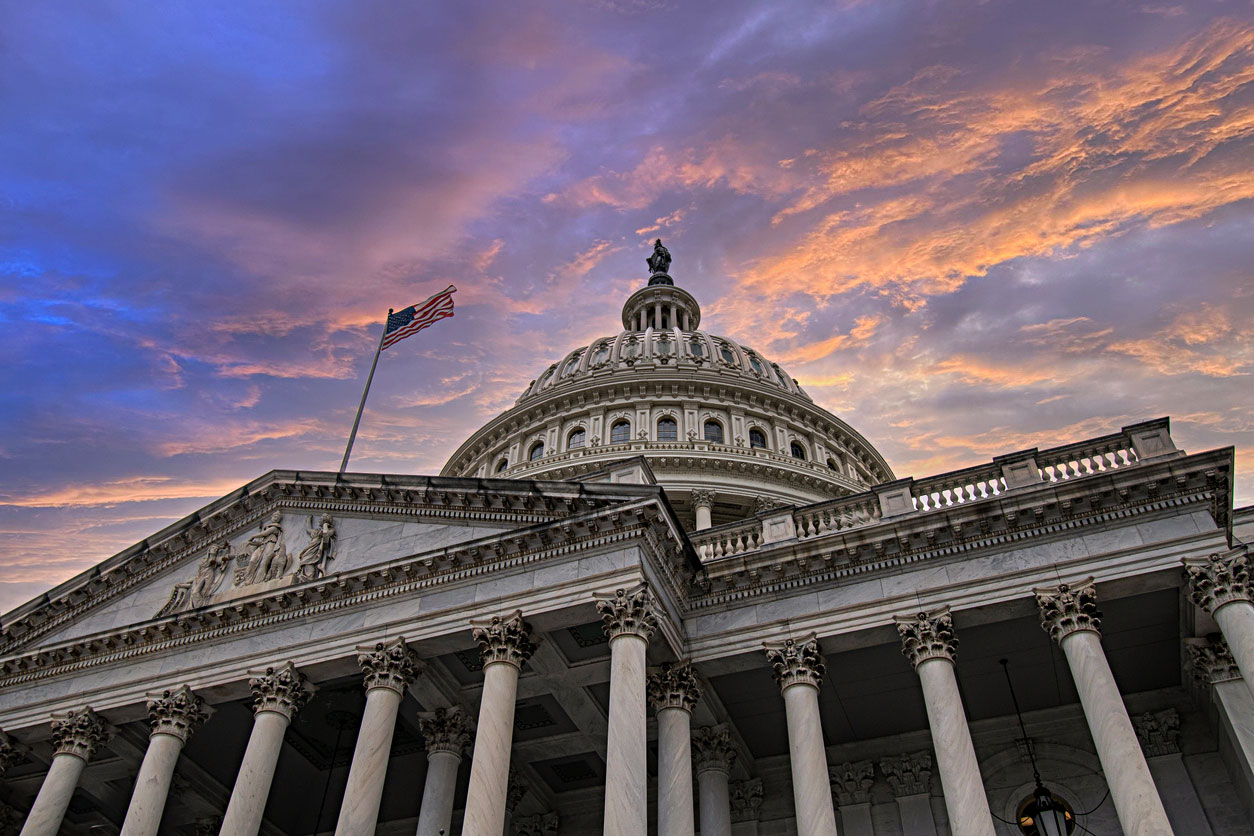Mechanical Insulation Installation Incentive Act

A Bill to Promote Energy Efficiency and Create Jobs for Insulators Union Members
The bipartisan Mechanical Insulation Installation Incentive Act, H.R. 2463, was reintroduced into the House of Representatives on March 27, 2025, by Rep. Linda T. Sánchez (D-Calif.). Rep. Brian Fitzpatrick (R-Pa.) was the bill’s first co-sponsor.
H.R. 2463 was referred to the House Ways and Means Committee.
Legislation Summary
The bipartisan legislation will create jobs for members of the Insulators Union and promote energy efficiency by significantly reducing U.S. energy consumption by supporting the proper installation of Mechanical Insulation across the country.
H.R. 2463 will provide a tax incentive for the installation of Mechanical Insulation by skilled mechanics in buildings to make them more energy-efficient
The Mechanical Insulation Installation Incentive Act (MIIIA) also provides a tax credit for up to 10 percent of the labor costs incurred by a taxpayer for the installation of Mechanical Insulation on pipes and equipment.
What is Mechanical Insulation?
Mechanical Insulation is one of the best investments a company or building owner can make during construction, renovation or regular maintenance due to its short return on investment, which is generally between six months and two years.
Mechanical Insulation is different as it is used on pipes, piping systems, mechanical systems, ducts, storage tanks and other commercial and industrial applications and processes.
It provides large-scale and long-term energy efficiency, emissions reductions, cost savings and safety benefits at manufacturing facilities, power plants, refineries, hospitals, universities, and government buildings while creating thousands of American jobs. Nearly all Mechanical Insulation is manufactured in the U.S.
When Mechanical Insulation is properly installed, it immediately protects buildings or facilities from problems down the line. Since Mechanical Insulation controls temperature and moisture, workers inside a facility are protected from exposure to mold and other potential bacterial diseases.
Applying Mechanical Insulation to machines or other industrial components ensures their longevity. By reducing moisture buildup and regulating temperature, Mechanical Insulation helps protect industrial equipment from rust while helping it run more efficiently.
Reasons to Support the MIIIA
To Make Mechanical Insulation Affordable
Unfortunately, even though Mechanical Insulation is a proven technology that cuts energy consumption and greenhouse gas emissions, some building owners consider it cost-prohibitive.
H.R. 2463 will help bridge the gap and make this technology more affordable.
While the credit may not seem significant, it is an incentive to raise awareness about the value of Mechanical Insulation. Similar to a sale at a store, the goal is to incentivize customers, as they will buy more than the sale item.
This bill is in addition to the short return on investment for Mechanical Insulation projects, which is often 24 months or less. Once the savings have paid for the project, then any future savings are profits.
Create Jobs
If passed, H.R. 2463 will help incentivize businesses to install Mechanical Insulation.
As the demand for Mechanical Insulation increases, the need for highly skilled and highly trained Mechanical Insulation workers will correspondingly increase.
This legislation will not only employ men and women who currently work as Mechanical Insulators, but it will likely also create additional jobs for those looking to enter the industry.
Reduce Greenhouse Gas Emissions
In addition to saving tax dollars, Mechanical Insulation will also help save the environment.
By reducing energy usage through the installation or repair of Mechanical Insulation, the FMIA will help the federal government cut back on the amount of greenhouse gas emitted into the atmosphere.
Multiple studies and Mechanical Insulation Energy Audits have proven that Mechanical Insulation can significantly reduce the energy required to run a system, which in turn, means a smaller carbon footprint.
What Does the Bill Do?
The MIIIA will help save energy, lower energy costs and reduce energy consumption while supporting good-paying Mechanical Insulator jobs.
By incentivizing the installation of Mechanical Insulation. H.R. 2463 will not only make it more affordable for companies to have Mechanical Insulation properly installed, but help save the environment. By using less energy, fewer greenhouse gases will be emitted into the atmosphere.
Additionally, thanks to the short ROI, Mechanical Insulation will not only pay for itself but also create savings that companies can invest in other areas of their business.
Bipartisan Support
The Mechanical Insulators LMCT thanks the following members of the House of Representatives for signing onto H.R. 2463 as co-sponsors.
Rep. Linda Sanchez
Rep. Sanchez stressed that Mechanical Insulation has long been overlooked as a solution to energy efficiency.
“Mechanical insulation is one of the most overlooked yet effective solutions for improving energy efficiency, and it’s time we recognize its true potential,” she said. “Our bill will support investments in energy-efficient upgrades for buildings across our country – from schools to hospitals to manufacturing plants and office buildings – while also creating good-paying union jobs. By incentivizing the skilled-labor installation of mechanical insulation, we can lower energy costs, reduce greenhouse gas emissions and build a more sustainable future.”
Sponsor: Rep. Sánchez, Linda T. [D-CA-38]
Rep. Brian Fitzpatrick
For Rep. Fitzpatrick, the commonsense, business-friendly bill not only focuses on energy efficiency but also on job creation.
“The Mechanical Insulation Installation Incentive Act is a commonsense policy solution to reducing energy waste, cutting emissions, lowering operating costs for businesses, and creating well-paying, skilled jobs across the country,” he said. “At a time when strengthening American energy independence and dominance is more critical than ever, this bipartisan legislation quite simply encourages investments that will bring us closer to a more sustainable, energy-efficient future. I am proud to partner with Congresswoman Sánchez in advancing this pragmatic and business-friendly climate proposal.”
Co-sponsors: Rep. Fitzpatrick, Brian K. [R-PA-1]*
*Original Co-Sponsor
Next Steps
The Mechanical Insulators LMCT is working to gain support for the MIIIA.
We look forward to speaking with more elected officials and their staff to explain the benefits of this legislation and to ask for their support.